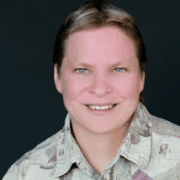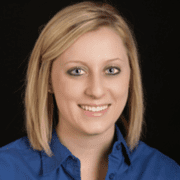In recognition of Autism Awareness Month, we will feature comments from our Little Star Center Board of Directors. This week’s Q&A is with Michele Trivedi, who has served on Little Star Center’s Board of Directors since 2006. Trivedi serves on the Health Benefits Mandate Task Force For Indiana and is active in the autism community.
What makes you most proud about serving on Little Star Center’s Board of Directors?
What makes me most proud of serving on the Little Star Board of Directors is that, even when it has been difficult, the Board has always made decisions that put the interests of the children and the quality of the therapy we provide to the children first. Even when that meant financial sacrifices, asking a Board member or a staff person to resign, or declining to expand into an area that was already served by multiple providers, we have always done what is in the long term best interests of the autism community in Indiana, the children we serve and their families. I love that about our Board!
During your time as board member, what do you think has been one of Little Star Center’s biggest success stories?
I think our biggest success is the dozens of little victories and successes our staff sees every day – they add up!
What is one thing you want people to know about individuals with autism?
People with autism want to be accepted for who they are, and want to have their talents and contributions valued. They do not want to be categorized and constantly paid attention to for what they CANNOT do. People with autism are successful at many things, and if we, the “typical” people would learn to look beyond what we THINK is wrong with other people, we would find many talented, amazing people to fill jobs – places in higher education, places in our community, where we need people to think differently. We get too stuck on labeling and limiting others instead of finding possibility and promise.
What do you see for the future of autism services in Indiana? Which areas of service are in need of growth?
Indiana needs services that focus on peoples’ abilities and not just their “dis”abilities in order to facilitate better education, treatment, and job opportunities for people with autism and other disabilities. Families in Indiana need an objective way to assess ABA providers, their training and experience and quality. Health and human services need to break down the walls and silos and work with the communities they serve to provide more effective and more efficient services.
How has being a part of LSC impacted you personally?
First, the treatment my child receives from LSC has changed her life and our life as a family for the better. The functional skills she has gained, and our ability to manage challenges has been key to improving our quality of life. We can envision our child having a job, doing things other people take as “given”. When she was first diagnosed, all we were told were the “nevers”, and she has already gained many more skills than we ever thought she would. And we have truly met an extended family at Little Star. We have no family in the state, and this means a lot to us. It has been so encouraging and rewarding to be on the Board with a group of people who care so much about Little Star and all of the families and staff at Little Star.

 What makes you most proud about serving on Little Star Center’s Board of Directors?
What makes you most proud about serving on Little Star Center’s Board of Directors?  By Angela Vargas, M.S., BCBA
By Angela Vargas, M.S., BCBA